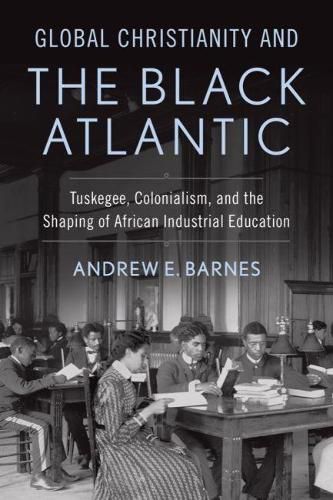Readings Newsletter
Become a Readings Member to make your shopping experience even easier.
Sign in or sign up for free!
You’re not far away from qualifying for FREE standard shipping within Australia
You’ve qualified for FREE standard shipping within Australia
The cart is loading…






Many Europeans saw Africa’s colonization as an exhibition of European racial ascendancy. African Christians saw Africa’s subjugation as a demonstration of European technological superiority. If the latter was the case, then the path to Africa’s liberation ran through the development of a competitive African technology. In Global Christianity and the Black Atlantic , Andrew E. Barnes chronicles African Christians’ turn to American-style industrial educationaparticularly the model that had been developed by Booker T. Washington at Alabama’s Tuskegee Instituteaas a vehicle for Christian regeneration in Africa. Over the period 1880a1920, African Christians, motivated by Ethiopianism and itsconviction that Africans should be saved by other Africans, proposed and founded schools based upon the Tuskegee model. Barnes follows the tides of the Black Atlantic back to Africa when African Christians embraced the new education initiatives of African American Christians and Tuskegee as the most potent example of technological ingenuity. Building on previously unused African sources, the book traces the movements to establish industrial education institutes in cities along the West African coast and in South Africa, Cape Province, and Natal.As Tuskegee and African schools modeled in its image proved, peoples of African descent couldaand didadevelop competitive technology. Thoughthe attempts by African Christians to create industrial education schools ultimatelyfailed, Global Christianity and the Black Atlantic demonstrates the ultimate success of transatlantic black identity andChristian resurgence in Africaat the turn of the twentieth century. Barnes’ study documents how African Christians sought to maintain indigenous identity and agency in the face ofcolonial domination by the stateand even theEuropean Christian missions of the church.
$9.00 standard shipping within Australia
FREE standard shipping within Australia for orders over $100.00
Express & International shipping calculated at checkout
Many Europeans saw Africa’s colonization as an exhibition of European racial ascendancy. African Christians saw Africa’s subjugation as a demonstration of European technological superiority. If the latter was the case, then the path to Africa’s liberation ran through the development of a competitive African technology. In Global Christianity and the Black Atlantic , Andrew E. Barnes chronicles African Christians’ turn to American-style industrial educationaparticularly the model that had been developed by Booker T. Washington at Alabama’s Tuskegee Instituteaas a vehicle for Christian regeneration in Africa. Over the period 1880a1920, African Christians, motivated by Ethiopianism and itsconviction that Africans should be saved by other Africans, proposed and founded schools based upon the Tuskegee model. Barnes follows the tides of the Black Atlantic back to Africa when African Christians embraced the new education initiatives of African American Christians and Tuskegee as the most potent example of technological ingenuity. Building on previously unused African sources, the book traces the movements to establish industrial education institutes in cities along the West African coast and in South Africa, Cape Province, and Natal.As Tuskegee and African schools modeled in its image proved, peoples of African descent couldaand didadevelop competitive technology. Thoughthe attempts by African Christians to create industrial education schools ultimatelyfailed, Global Christianity and the Black Atlantic demonstrates the ultimate success of transatlantic black identity andChristian resurgence in Africaat the turn of the twentieth century. Barnes’ study documents how African Christians sought to maintain indigenous identity and agency in the face ofcolonial domination by the stateand even theEuropean Christian missions of the church.